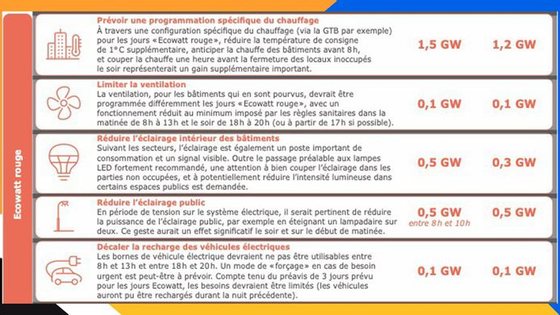As analysts have long been warning, This winter is likely to be particularly difficult for Europeans due to their reliance on Russian gas. With the cold at the door and the indefinite cutoff of the gas supply from Russia to the countries of the European Union, the governments of the different member states are trying to deal with this crisis and limit its impact. The cuts are more than expected and, in France, the possibility of limiting the energy supply in non-essential activities, which includes the charging of electric vehicles, is already accepted.in periods of greatest demand from the electricity grid.
The restriction that is on the table must be implemented only on working days, during peak hours, that is, between 08:00 and 13:00 and from 18:00 to 20:00.. In other words, five of the seven days of the week, the French who drive electric cars may have to plan the recharging of their vehicle within the “interval” of these seven hours of interdiction. According to the French Prime Minister, Élisabeth Borne, this limitation is being considered for the colder months, so it could be extended from autumn to spring.

From the outset, this measure will only come into force in case of extreme need, which will be indicated through the EcoWatt information scheme, a system that since 2020 has evaluated energy consumption and the availability of the French electricity network in real time to emit different types of notifications in a three color scheme (blue, green and red). It will be precisely in the event of a red alert that users of electric vehicles will sometimes be prevented from recharging, but the notice will be given three days in advance. For this reason, the French Government advises those interested to recharge their electric car the night before the start of the ban. It should be noted that this possible limitation will not be permanent and will not prevent so-called “emergency top-ups”.
It is a fact that the charging of electric vehicles draws a lot of energy from the network, but it is also a fact that despite the fact that the sale of this type of car continues to grow, the reality is that the mobile fleet is still not very expressive in a car park dominated by vehicles equipped with combustion engines. On the other hand, it is cheaper for the user to recharge the battery during the so-called empty periods, so the effects of this possible ban will not potentially affect many French drivers.
This measure is part of the provisional action plan of the French electricity network (RTE) for the winter 2022-2023, designed to reduce the country’s electricity consumption by between 1 and 5%, or up to 15% in the most extreme scenario. .. It should be remembered that, in extreme situations, other countries have already adopted similar measures. still this year, When an intense heat wave hit China, local authorities tried to impose limits on charging battery-powered vehicles, closing public charging stations or restricting access.. All in the name of prioritizing the most critical electrical needs.
Source: Observadora
